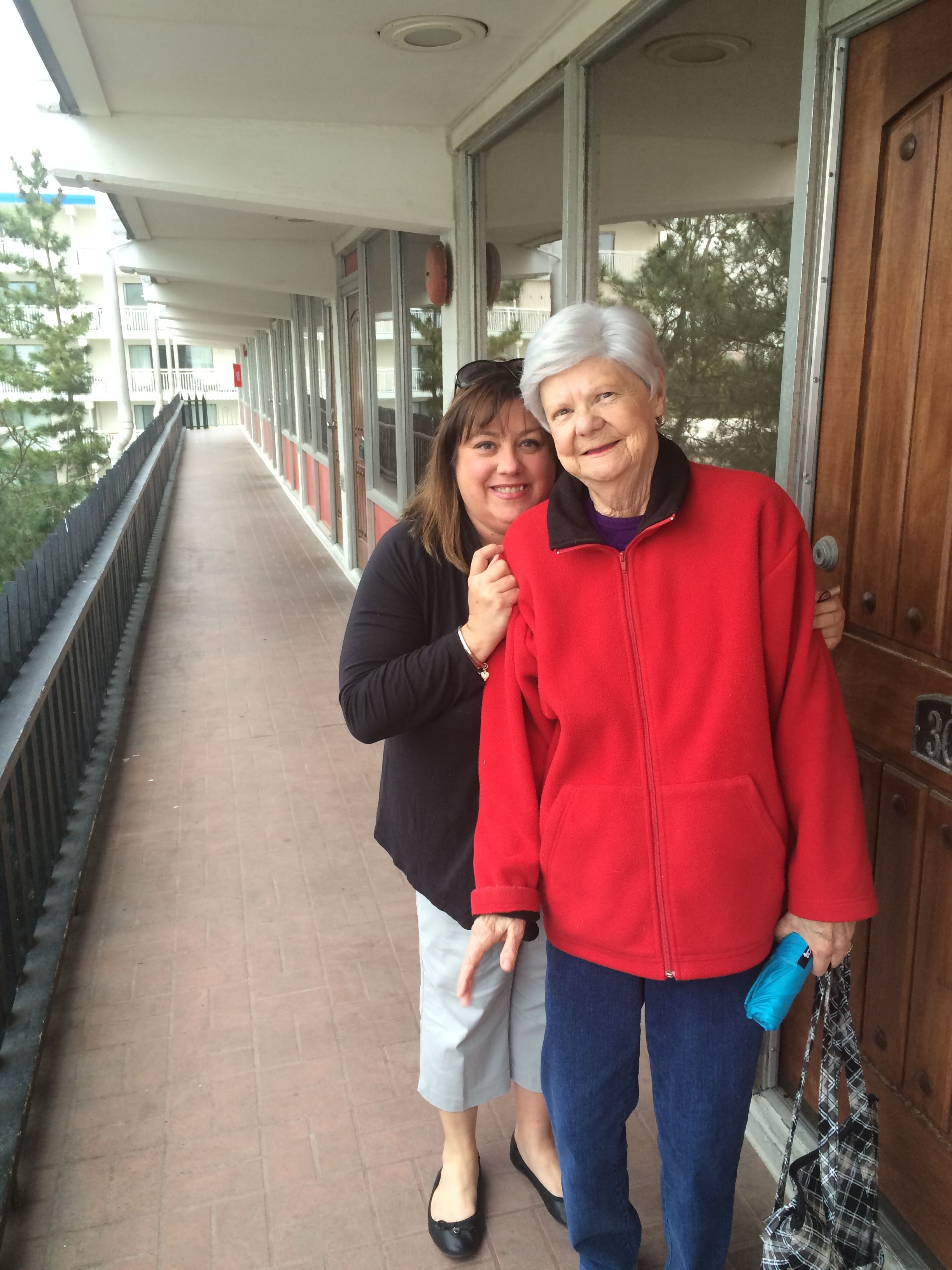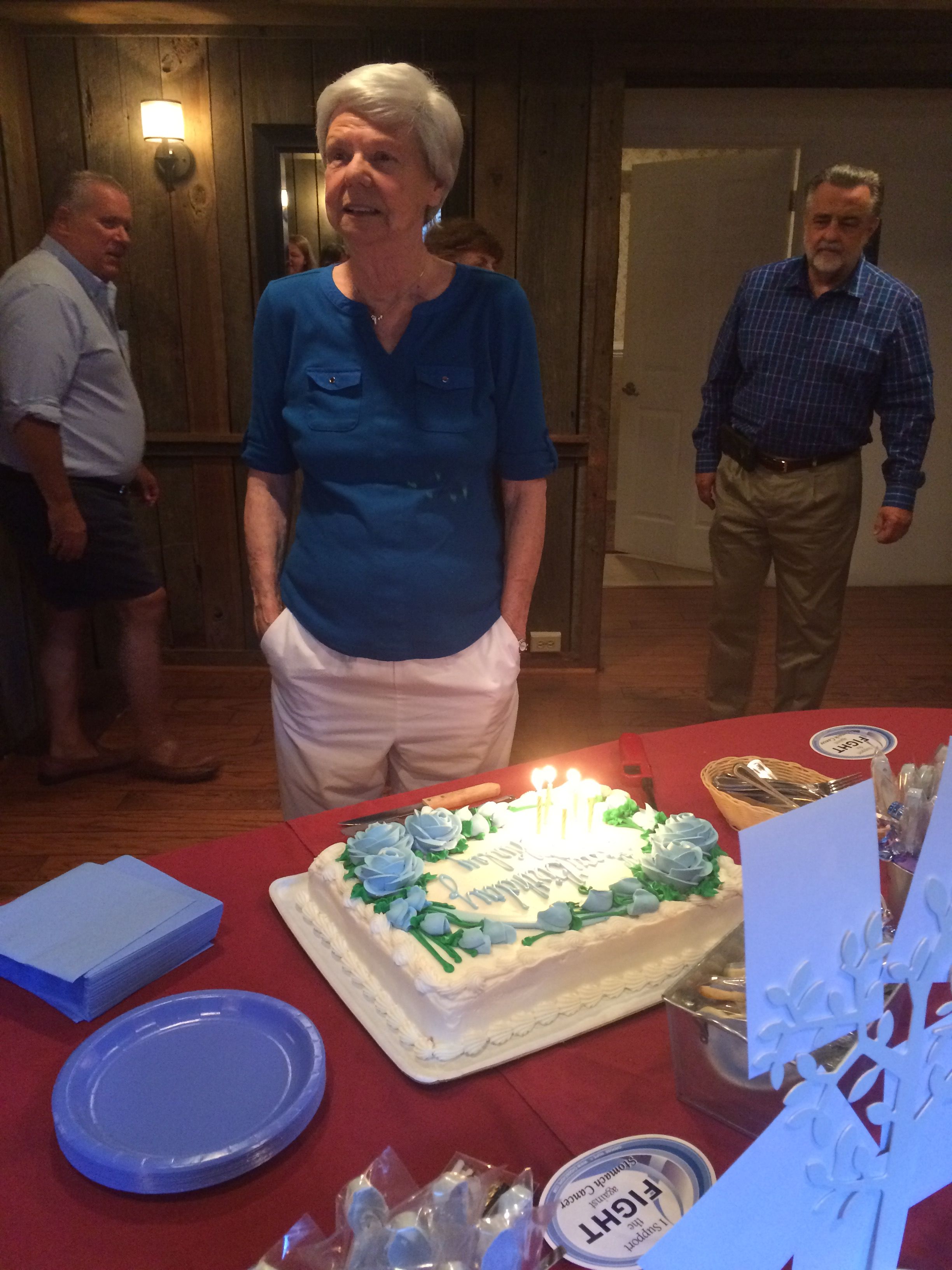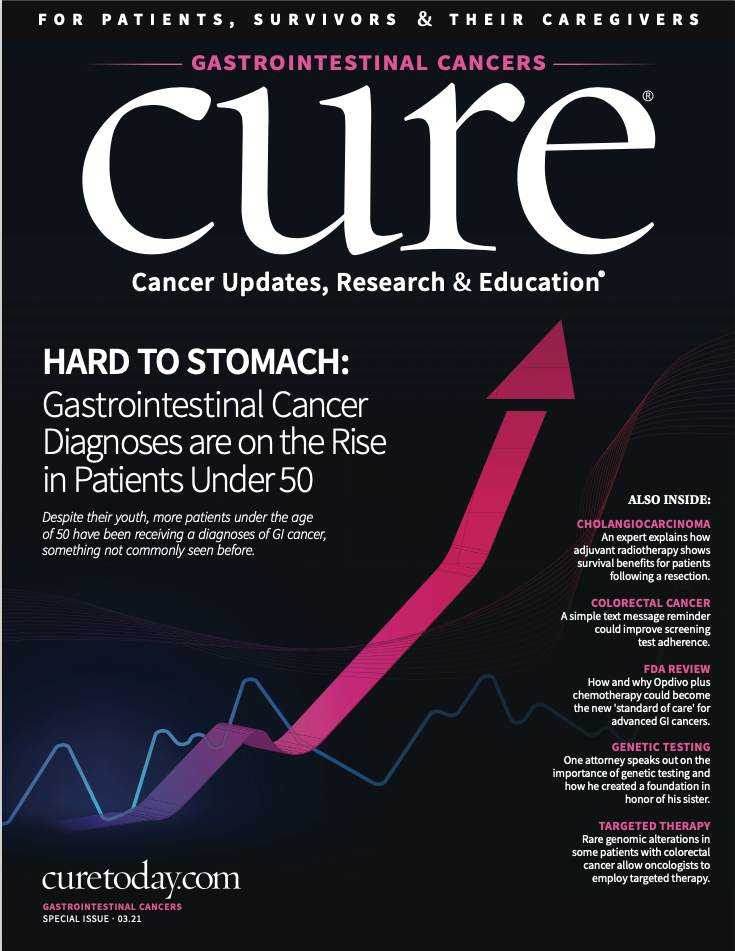Publication
Article
CURE
How Superwoman Battled Stomach Cancer at Age 78
Author(s):
I am a nurse practitioner and a professor. But my best job was being a daughter and caregiver to the most wonderful mother anyone could ever have.
On October 25, 2016, my mom, Shirley, finally had an endoscopic ultrasound, three months from the date that she was hospitalized with a major gastrointestinal (GI) bleed. When the doctor came back in, I could see in his eyes what I suspected: it was not good. His words were, “You need to get your mom to an oncology surgeon as soon as possible.”
I left and made an appointment for Friday, October 28th, before the results confirmed our fears: stomach cancer. I raced around pulling strings and making phone calls to get her scheduled for a port placement, a J-tube placement and a laparoscopic look at things on the inside to confirm the staging of her disease. All of these things were done on November 1, 2016, and we continued to pray that the cancer was contained in the stomach, leaving the possibility for surgery. We received the call the night before she started chemo and found that it was in the washings of the peritoneal fluid, stage 4. That meant no surgery, just chemotherapy, for as long as she could stand it. We were devastated!
To give some background, I am a nurse practitioner who works in oncology, and am getting a PhD in oncology research. How did my mom get diagnosed with stage 4 stomach cancer when I see her all the time? What did I do wrong, how could I have missed this? I struggle with these questions on a daily basis.
My mom’s story really begins in May of 2016 when she called and said she was having horrible reflux and no antacid was working, she said even swallowing was painful. I gave her an over-the-counter medication and two days later the symptoms subsided. But I insisted she see a GI specialist and we made an appointment that week, where I explained how rare this was for my mom and how she never even took Tums.
While the doctor said there was no reason to do an endoscopy if she was feeling better, I decided to watch her like a hawk. Over the next month she looked more tired, but being close to 78, it was nothing too alarming. On my birthday, June 7th, 2016 she said she was not very hungry and ate very little. I started to notice she looked a bit thinner but she said all her clothes fit just fine. I called the GI doctor and asked if we could do a scan or an endoscopy now since she was not eating well, and he told us to give the medicine time to work and increased her dose to twice a day.
Lisa and Shirley

My mom turned 78 on July 7th, 2016. Her party was awful due to the fact that she could not eat much, and I told her that if the doctor would not agree to an endoscopy, we had to find another doctor. Within two weeks, my once vibrant and active mother who lived alone, drove, took care of her house and was socially active, was weak and exhausted. She told me it was because of her knees; she was in denial and refused to go to the hospital. Her primary care physician said she just appeared tired and needed to take it easy, probably due to the summer heat, but at an appointment with her cardiologist three days later, while sitting in the waiting room, my mom, with terror in her eyes, said to me, “I can’t talk, I can’t speak…”
I pushed the emergency bell knowing she was either having a stroke or a mini stroke, but a doctor said she was in atrial fibrillation. Upon arrival at the hospital, I knew she was anemic and requested scans of the brain and lab work. Her red blood cell count was so low they gave her two units of blood right away. She was in atrial fibrillation from the lack of blood in her body. She was transported to the medical floor where the testing began: CT scan, MRI of the abdomen, red cell scan, an endoscopy and a colonoscopy. The findings: acute gastritis.
I insisted something was very wrong and the bleed had not just stopped on its own, as her blood levels continued to drop. They said because of her age, a significant bleed is hard to recover from. But while in the hospital, she received six units of blood over the next five days. The only “odd” finding on the scan was pyloric stenosis, a narrowing of the sphincter that is between the stomach and small intestines. They said they were not sure what that was, and to follow up with a gastroenterologist. What else could it be but a tumor? I asked if they could do a laparoscopic procedure to explore the abdomen and they said it was not necessary since the biopsies in the stomach were all fine. Once again, my mom was just happy to go home, while I was terrified, and with good reason!
The rest of August and September had me making appointments and getting nowhere. She had another endoscopy after a month of pleading. All biopsies came back fine and doctors said the gastritis was looking better – but my mom was not looking better. Weight loss, no appetite, and now we had vomiting after a few bites of food. Next, we were now getting a test where they would place a camera in her stomach that would pass through and enter the intestines. Her doctor, her GI specialist, was unable to do this because the stenosis had gotten worse and he could not pass a pediatric scope into the duodenum. So, we waited 14 days to return: October 25, the second worst day of my life.
At that point, we had a diagnosis and were faced with Stage 4 cancer of the stomach, and the only thing we could do was chemotherapy until my 78 year-old mom could no longer take it. I was told if she made it to Christmas that would be a real miracle; this was on November 8th. Six weeks - are you kidding me?
Shirley Lorden

She started chemo with a J-tube in place, receiving five cans of nutrition a day, which made her feel bloated and caused diarrhea. Her chemo regimen was called FLOT: four chemo medications, and it was a tough regimen. The oncologist said she might not be able to tolerate since she was so advanced and so sick. Within a week she was in the emergency department with a neutropenic fever, and an ileus, so was left with no nutrition for days. My mom was getting worse and she was scared. I prayed and begged her to be transferred to another hospital, but she said she had faith in God and she could do this. I said we would do it her way, but I vowed to do everything I could to help her.
When she no longer could tolerate her J-tube feedings, they started nutrition via her port. She worked hard every day with physical therapists to get stronger, and I walked the halls counting the blocks on the floor and encouraging her to walk one more block before resting. I nagged her to do exercises in the chair. I woke her up to walk the halls or move into the chair. To keep her mind active, we watched Jeopardy every night and did crossword puzzles. I brought books from home and we read the paper every day. Slowly, she got stronger, but Medicare said they would not pay for her IV nutrition and that we had to try another tube feed. But every time we did, she had horrible bloating, pain and diarrhea. Now what?
On the day that she was to be discharged, my mom asked if she could try to eat, and wanted a chicken quesadilla. While not what I expected to hear, one was ordered and I had the basin close, thinking this is not going to go well at all… but then she ate one and then half of another! Was this a miracle or was that crazy strong chemo doing something? The oncologist said he would recommend us changing the drugs, or if we stayed on those drugs, he would drop the dose. Instead, I begged again and said give her another chance please, she wants to try.
During chemo number two, the dose was the same and she did really well. Then, it was Christmas and my mom was there with me and I was happy, exhausted and devastated all at the same time. She was weak and struggled with activities around the house, but she fought so hard and little by little regained some of her strength. On Christmas Day, she was very tired and said she was short of breath, so the next day we went to the emergency department and learned she had fluid in her lungs.
I thought it had spread to her lungs, but after having both lungs drained and the fluid was clear, she had an arrythmia that needed to be controlled with a medication. The day she had 1.5 liters of fluid removed from her lungs, she ate dinner and sat up in the chair saying how much better she felt.
On December 31, 2016 she came home and set in her home and watched the ball drop: good bye, 2016! After that, my mom gained weight, ate close to 2,000 calories a day and never missed another chemo. She never received another transfusion again! She went back to her old self, many days saying I can’t believe I even have this anymore. She made it to her 79th and 80th birthdays, and had an amazing Christmas. My warrior mom was living her life with hope and feeling good!
In June of 2018, she was diagnosed with bladder cancer and she started to get a bit weaker. The chemo was changed, and she even had 10 rounds of radiation to the bladder. In September 2018, she had a fall, and that was the beginning of the end. She said she knew it was getting worse, but she said I will fight on and never stop chemo because that is what is “keeping me alive.”
She received her last chemo on October 23, 2018 and died from sepsis on October 29, 2018.
My mom did not lose her battle with stomach cancer. She won. She won the day she was diagnosed, because she lived everyday with courage and strength, after 32 rounds of chemotherapy, 10 rounds of radiation, and the most impressive stat, countless days of happiness.
A good day to my mom was seeing the sunrise, seeing her flowers and having time on the porch with me, and seeing the sunset at night. I cherish every second with my mom and miss her every second of every day! She was loved by so many and she touched so many people in her life. She is a survivor! I am an only child. It has always been “me and my mom” and it was until the very end. The most important person in my life is gone but with me every day. My only goal is to make her proud!
What is wrong with the story is how long it took to get her diagnosed. I don’t know if her story would be different. I will never know that, but what I do know is that her story is important and needs to be told. She lived a good life and she did not deserve to suffer for so long with no treatment. No one does, and this needs to stop! Patients deserve better and more aggressive care.
My favorite word is “believe”, and I believe that my mom’s story can help other people. I believe that what happened to her can turn into something good. Every time I see this quote, I think of my mom: “She believed she could, so she did!”
I love you mom and I promise that I will always fight for a cure and the opportunity to help others, but most of all, I will always believe in you!




